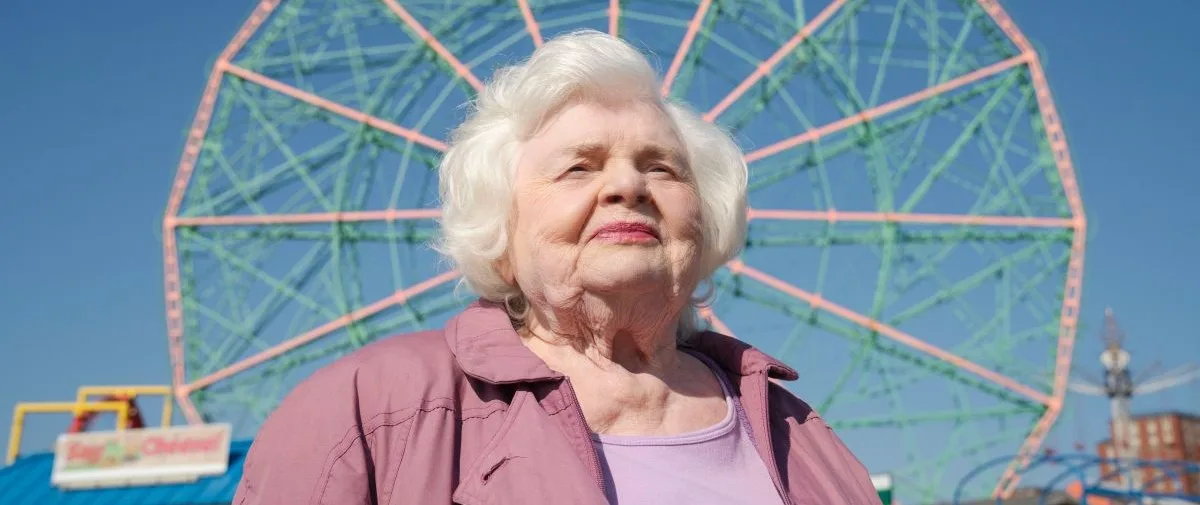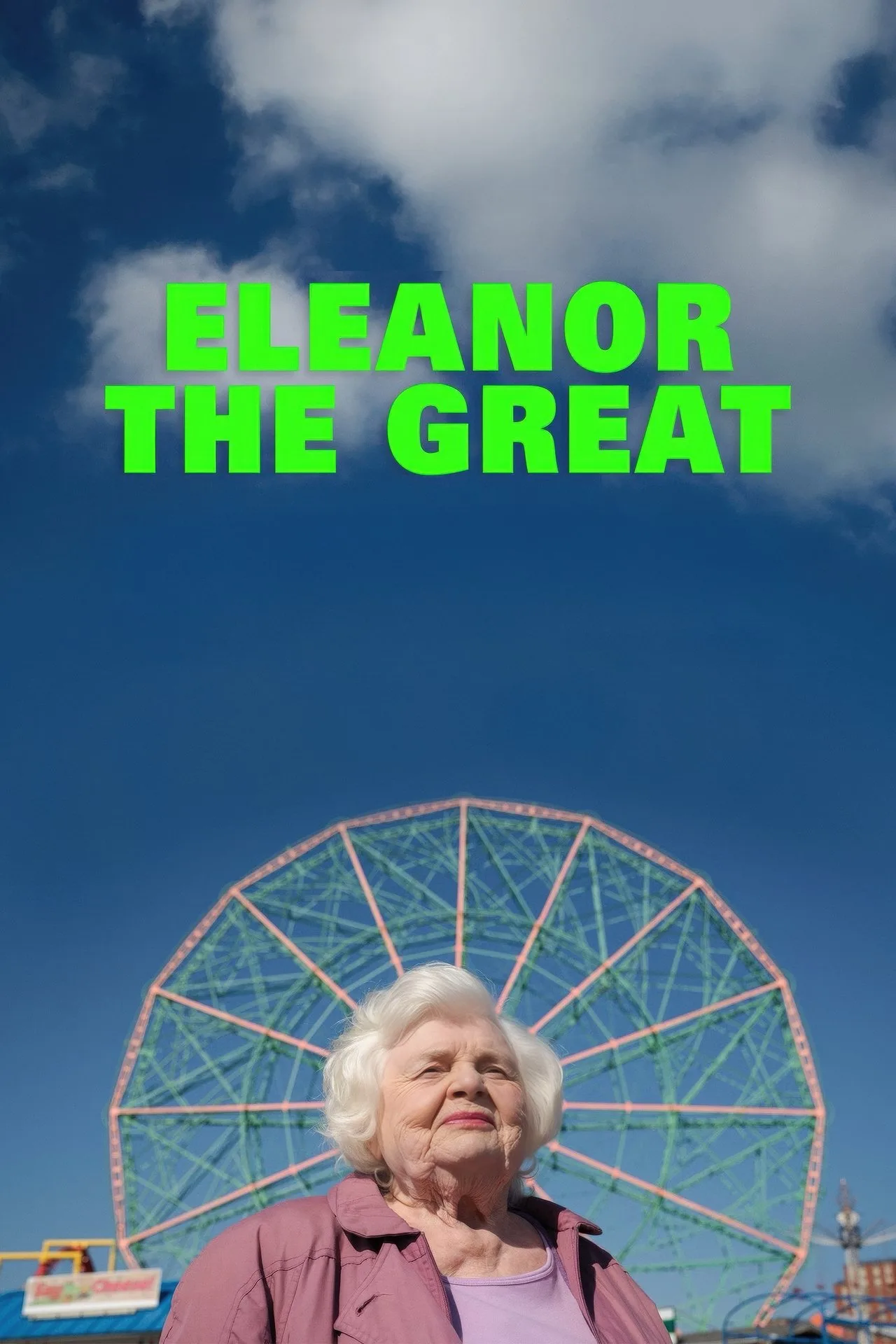Who among us has not tried to pass ourselves off as a little something more than we are? In the case of Scarlett Johansson‘s “Eleanor the Great,” one fateful fib sows the seeds for a great misunderstanding that escapes from its storyteller.
When we first meet Eleanor Morgenstein (June Squibb), she and her longtime friend Bessie (Rita Zohar) are living the “Golden Girls” life in Florida, sharing stories around the kitchen table, exercising on the beach, and putting lazy whippersnappers into their place. However, when Bessie dies, Eleanor decides to move back up to New York with her daughter Lisa (Jessica Hecht) and grandson Max (Will Price), neither of whom has much time for her. Begrudgingly left behind at the local JCC, she stumbles into a meeting of Holocaust survivors and is mistaken for one of them.
Instead of quickly setting the record straight, she recounts Bessie’s life story as her own, catching the attention of a young observer, Nina (Erin Kellyman), a journalism student grappling with the recent loss of her mother and growing up in the shadow of her famous anchorman father (Chiwetel Ejiofor). In trying to get Eleanor’s story, Nina strikes up a friendship with the difficult personality and, in the process, learns to process her own loss. Only, as Eleanor keeps sharing Bessie’s story, more and more people hear it, and she finds herself further trapped in her deception.
Scarlett Johansson’s feature debut is quite the surprise. It’s a tricky story with an uncomfortable moral quandary and a main character who’s not always so sympathetic. For as charming as Squibb is in the role, Eleanor is a bit of a firecracker, the type that burns those too close to her. She’s mercilessly tough on her daughter, needling and embarrassing her in front of her son, whom Eleanor is much kinder to. She doesn’t shy away from the occasional little white lie, which sets the stage for what’s to come. At first, Eleanor puts up that same tough act against Nina, who, fortunately, isn’t so easily pushed away. In some sense, Eleanor is a character at odds with herself. Still, her loneliness triggers her need to fit in with a group of survivors she doesn’t belong to and eventually, live up to Nina’s desire to tell her story.
Tory Kamen, also making her feature screenwriting debut, treads into some ethically murky waters throughout Eleanor’s journey and absolves her too quickly from the hurt caused by her lies. The premise is a slippery slope with a thorny question: Does Eleanor’s loneliness justify the hurt she unintentionally causes? She can be tough to forgive, especially since she’s passing herself off as the victim of a genocide. Kamen never quite finds an even hand when it comes to Eleanor’s temperament and motives, or answers if her lead character reckons with the vanity that inspires her to pass her friend’s story as her own. Grief becomes the explanation for her bad behavior, but the story doesn’t really unpack much further.
Still, the film itself has its charming moments. Johansson and director of photography Hélène Louvart (“La Chimera”) give Squibb a glowing spotlight, and she wears it well. There are numerous close-ups of the actress, giving her the screen time and space to feel out her character’s conflicts, capturing her coy smiles, her impish delight over a cutting remark when it lands on its target, and panicked frowns when she realizes her stolen story has breached containment. Squibb is, of course, the star of “Eleanor the Great,” but her rapport with her younger co-star Kellyman gives the movie something quite special. Their tender moments discussing grief and going out on the town are far more satisfying than the false pretense that brings them together. As a performance, Kellyman holds her own, shouldering the weight of her character’s profound loss and the pressure to keep a sense of normalcy, and becomes a worthy, earnest foil for Squibb’s character to open up and allow herself to enjoy the friendship.
If Johansson is as unafraid to tackle complex characters as she is with “Eleanor the Great,” then hopefully, she will take on many more interesting stories and feature underseen actors. Her work with Squibb gives the actress one of her most challenging roles yet, a feisty nonagenarian antihero whose need for company moves her to tell a pretty unforgivable lie. The film struggles with what made “Jojo Rabbit” a contentious title–a comedy about a serious subject that does not quite stick the landing, only exposing its flaws even more. While “Eleanor the Great” never quite recovers from the moral issue at its center, Squibb’s lively performance makes it memorable.
This review was originally filed from the Toronto International Film Festival on September 9.




















